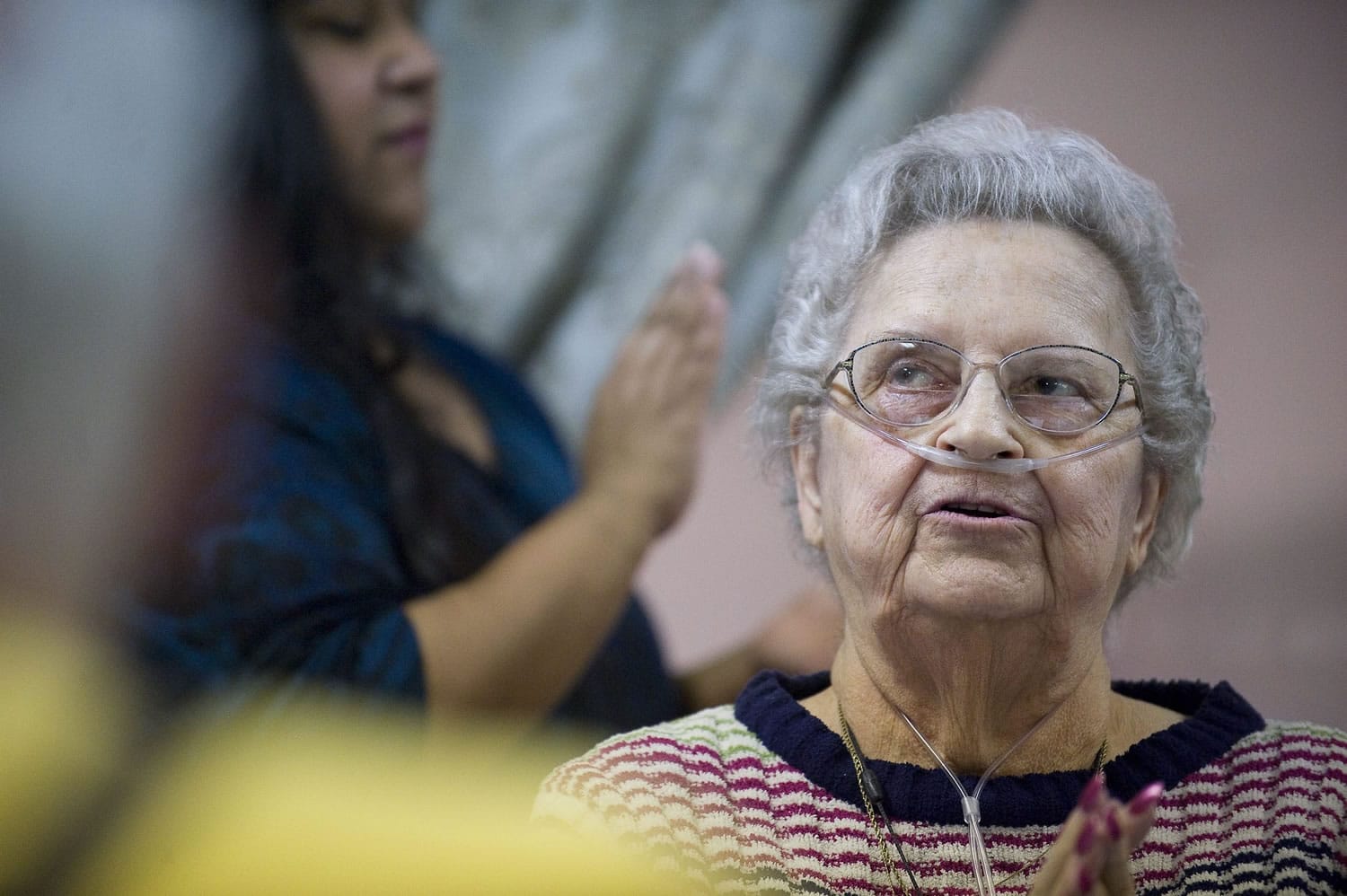Vancouver resident Clyde McGuire, 88, slid some checkers on a graph in an attempt to copy a pattern made by cognitive trainer Debra Ochoa.
The game is called “Copy Cat,” Ochoa explained. “It strengthens working memory and short-term memory, logic and reasoning and focus and attention,” Ochoa said.
Even at age 88, it’s not too late to strengthen the brain, Ochoa said.
Aging isn’t all about brain deterioration, said Cory Bolkan, assistant professor of human development at Washington State University Vancouver.
“While there is some intellectual decline with age, there are also areas of growth and stability in intelligence,” Bolkan said. “This highlights the importance of challenging the myths of aging often common in society because more recent scientific evidence supports the idea that growth is possible in old age.”



